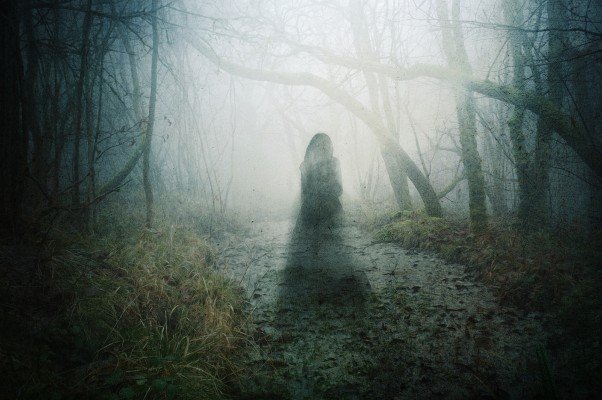BEING GHOSTED: WHY IT HAPPENS AND HOW TO COPE
Ghosting occurs when someone you know disappears without a trace. This can happen at the very beginning of a relationship, or in the middle of one, whether in person or online. Dealing with being ghosted is incredibly difficult – especially because you don’t usually know the cause or how to react.
The person suddenly cuts all contact with you – they don’t respond to texts, emails, calls, or social media messages. The mental effects of being on the receiving end of these actions can be very challenging.
WHY DO PEOPLE GHOST?
People ghost for a variety of reasons. Most experts agree that people who ghost are avoiding an uncomfortable situation. While perceived as a lack of regard, the people who ghost often feel this is the best way to handle their own distress or their inability to communicate clearly. Ghosters themselves admit they don’t want to hurt you or they don’t know what to do. Sometimes, they don’t think discussing a situation was necessary or they became scared. Ghosting is a passive way to withdraw.
But ghosters perceive that to disappear completely might actually be the easiest and best way to handle the situation for all. Others ghost because now that it’s common, it’s an almost justifiable way to exit relationships nowadays. Unfortunately, in today’s dating culture, being ghosted and ghosting is common.
HOW TO COPE WHEN YOU’VE BEEN GHOSTED
While it’s not easy, and it often takes time, there are many things you can to do start to feel better even if you’ve been ghosted by someone in your life.
RID YOURSELF OF BLAME
After someone suddenly disappears, it’s hard to not feel regret, embarrassment or shame. After all, you were vulnerable for the sake of growth, and it backfired. While ghosting feels personal, remember it’s not about you. It’s about them.
Because you usually can’t find a cause and there is no explanation provided, you may blame yourself. You might want to put up walls so you won’t be hurt again in the future. Or you may tell your friends you are done with dating, using distorted thinking such as “all-or-nothing” thinking. Now is the time to regroup, be kind to yourself and take a break. You are not to blame for someone walking away without a peep. Nor is it your fault that other people couldn’t maturely give you the truth.
NIX THE SHAME
Shame comes about sometimes when we are reminded of previous rejections. But is ghosting actually rejection? Ghosting carries an echo of old rejection. It emulates a previous hurt or betrayal by someone we had to trust during our formative years. Ghosting isn’t necessarily about the betrayal, but more about having not processed and integrated that early memory. With this understanding it is helpful to see why self-compassion is in order. Being dropped and feeling unseen is always painful.
CHOOSE SELF-CARE
How do you move forward? You need self-compassion and self-care. Invest in time with friends and family who can support you. Indulge in activities that make you happy, like taking a yoga class or returning to a hobby you love. Try homeopathic treatments or acupuncture.
When you think of the ghoster, be sure to reframe your ideas about them and the relationship. After all, they violated the contract of what it takes to be in a mature, healthy relationship. That includes mutual respect, good communication, and thoughtfulness. It does give insight into how this person wasn’t the right person for you anyway.
WHAT DOES GHOSTING SAY ABOUT A PERSON?
Despite ghosting being normalized, it’s more about the problem the ghoster is having than it is about you. Ghosting says a lot about the person in many different ways. For instance, it could say they lacked the courage to do the right thing by explaining why they could no longer continue a relationship with you.
The person who ghosted you didn’t treat you with integrity, therefore, did not consider the implications for their actions. It could also signal that they may not care about their actions and are inconsiderate or unreliable. Or it could be none of the above. The ghoster may be dealing with a mental health or medical condition that is making it difficult for them to reach out.
Whatever the case, being ghosted is not a reflection on you or your worthiness.
IS GHOSTING EMOTIONAL ABUSE?
Ghosting is a form of silent treatment, which mental health professionals describe as emotional cruelty or even emotional abuse if done so intentionally. You feel powerless and silenced. You don’t know how to make sense of the experience or have an opportunity to express your feelings.
This cowardly act, unfortunately pretty normalized by our culture, can cause immense pain. As you have no clue what may have happened, your mind first jumps to many possibilities. Was this person injured in a car accident? Is their family okay? Maybe they are just busy and will get back to you later?
You may feel a wave of different emotions: sadness, anger, loneliness, confusion. No response is especially painful for people on an emotional level. You feel helpless and shunned without information that could guide your understanding.
Being ghosted may result in exhibiting a variety of negative emotions and questioning yourself. Don’t play the blame and shame game. Hold your head up high, hold onto your dignity, and let them go. Someone better could be out there looking for you.
Practice self-care and building your resilience during this painful time. If you continue to struggle after being ghosted, trauma therapy could be helpful.
